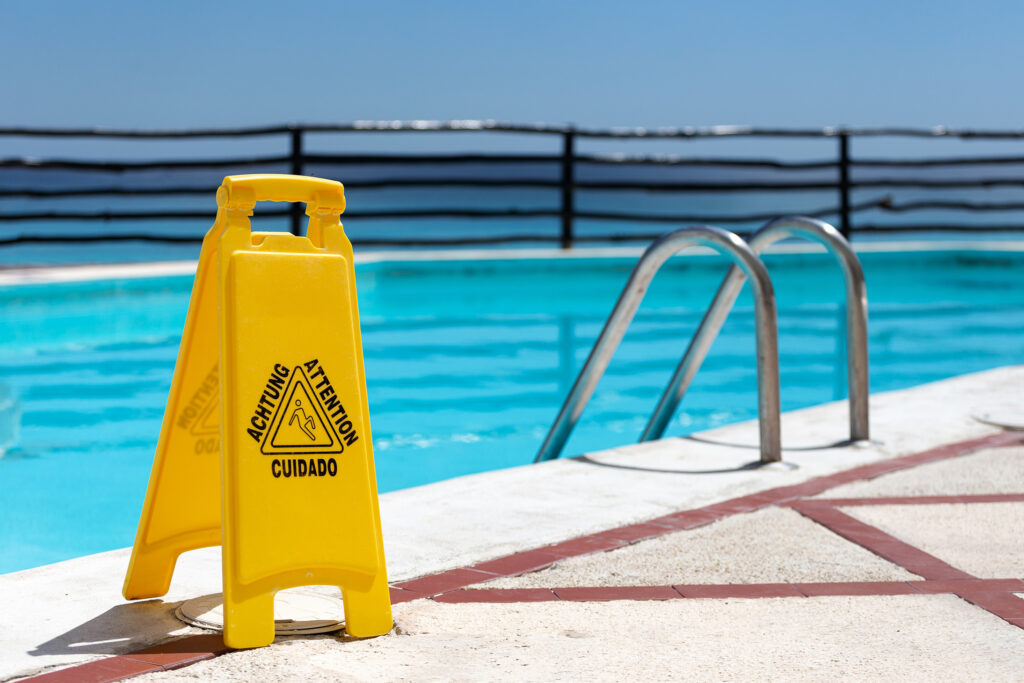Know Your Rights After an Injury on Someone Else’s Property
Injuries happen. But when they happen on someone else’s property because of unsafe conditions, the legal question becomes: who is responsible? If you’ve slipped, tripped, or been hurt due to negligence on another’s property, a premises liability lawyer can help you understand your legal rights and next steps.
KFB Law has more than 37 years of combined legal experience with Florida premises liability cases and personal injury victims, helping Floridians deal with the aftermath, insurance matters, and recovery. Let’s break down what you need to know and your next steps if you’re proving negligence.
When to Contact a Lawyer From KFB Law
Immediately.
It’s best to speak with our premises liability lawyers as soon as possible after your injury. Delays can hurt your case, especially if the hazard is repaired or cleaned up quickly. Witnesses also may forget what they saw or have trouble remembering things. Surveillance footage may not always be kept forever and may get deleted.
Additionally, Florida law limits how long you have to file a claim. Under the statute of limitations, most premises liability cases must be filed within two years of the date of injury. Waiting too long could mean losing your right to take legal action and prevent you from collecting needed funds for your healing and recovery.
What Is Premises Liability?
Premises liability law is a sub-category of personal injury law where a person sustains an injury directly due to an unsafe condition or by an assault that may have been prevented by the person or company that has control over the property. This can apply to both residential and commercial spaces.
In Florida, property owners have a legal obligation to maintain reasonably safe conditions for people lawfully on their premises. When they fail to do so and an injury occurs, they could be held liable.
Common Examples of Premises Liability Cases Handled by KFB Law
Premises liability covers a broad range of incidents. Here are some of the most common scenarios where a claim might arise:
- Slip and fall accidents from wet or uneven flooring
- Poor lighting in hallways or stairwells
- Cracked, uneven sidewalks or broken steps
- Inadequate security that leads to assault or injury
- Falling merchandise in stores
- Missing or broken handrails on stairwells
- Swimming Pool Accidents
- Amusement Park Accidents
- Dog bites or animal attacks
- Elevator or escalator malfunctions
Each case is different, but all involve a hazardous condition that should have been addressed by the property owner or manager.
Visitor Classification: Why It Matters
Florida law classifies visitors into three main categories, and the level of care a property owner owes depends on which category you fall into.
Invitees
Invitees are people invited onto the property for business purposes (like customers). Property owners owe the highest duty of care to invitees.
Licensees
Licensees are social guests or others allowed on the property for non-business reasons. Property owners still owe them a duty of care but to a lesser degree.
Trespassers
Trespassers are exactly as you think of them: people who enter without permission. Property owners generally owe the least duty to trespassers, but there are exceptions that may not have occurred to you—children, for example. Special laws, known as the attractive nuisance doctrine, are in place to protect children and teenagers. If there is something on a property that could be dangerous and could attract minors, then the property owner is expected to take special precautions to avoid injury. Typical attractions include swimming pools, caves, machinery, and dangerous animals.
This classification can play a major role in determining whether you have a valid premises liability claim. The specifics of the law vary from state to state and from community to community, but the general principles are universal.
A property owner has a legal duty of care to ensure that reasonable precautions are taken to avoid bodily injury.
Proving a Premises Liability Claim
To pursue a successful claim, your premises liability lawyer must prove the following:
- A dangerous condition existed on the property.
- The property owner had actual or constructive knowledge about it.
- The owner failed to correct or warn about the hazard.
- You suffered an injury as a direct result of that condition.
This might sound straightforward, but these cases often get complicated, especially when insurance companies are involved. For example, if there had been a recent series of assaults in a shopping center parking lot, it would be reasonable for the property owner to increase the security in that area. This speaks to reasonable steps a normal person would have taken in a similar situation to fix inadequate security.
Needless to say, when insurance factors into the equation for something like this, lines start to become gray on who is ultimately responsible. Our legal team has dealt with the complicated mix of property managers, business owners, and insurance companies pointing fingers at each other, causing delays for personal injury victims.
Challenges in Premises Liability Cases
These cases can be tough to win without strong evidence. Common defenses from property owners or insurers include:
- Arguing that the hazard was “open and obvious”
- Claiming you were not paying attention
- Denying knowledge of the hazard
- Alleging you were somewhere you weren’t supposed to be
A seasoned premises liability lawyer from KFB Law can anticipate these defenses and build a case strategy accordingly.
What You Can Do: Collect Evidence That Helps Your Case
It’s not a good idea to wait too long—preserving evidence while it’s fresh is critical. The more documentation you have, the better.
Here are some steps to take if you’re injured:
- Take photos of the scene and the hazard.
- Get contact info for any witnesses.
- File a report with the property owner or business manager.
- Seek medical attention and follow all treatment recommendations.
- Keep records of medical bills, missed work, and other expenses.
How a Premises Liability Lawyer From KFB Law Can Help
Handling a premises liability case on your own is risky. At KFB Law (Kinney, Fernandez & Boire, P.A.), our personal injury lawyers provide experienced litigation representation for injured victims of accidents due to negligence. We understand the complexities of Florida premises liability law and work closely with clients to navigate the legal system. Our lawyers are well-versed in these cases and know the loopholes that a property or business owner may try to leverage in order to get out of their legal responsibility to rectify a dangerous condition.
We proudly serve communities throughout the Tampa Bay Area and Central Florida, including Tampa, Clearwater, St. Petersburg, and beyond. When you contact us, you’ll speak directly with a knowledgeable professional who can help assess your situation, dig into the facts, build a strategy, and advocate for your best interests every step of the way.
Let us handle the legal work so you can focus on recovering!
Call KFB Law for a Free Consultation and Case Review
You don’t need to go it alone—especially when you’re trying to heal.
If you’ve been injured on someone else’s property and suspect negligence played a role, it’s time to talk to a premises liability lawyer. Let the experienced team at KFB Law guide you through your legal options.
Get straightforward answers about your rights today. Call us today at 813-279-6519 or fill out our form for a free case evaluation.
FAQs About Premises Liability Cases
What if I was partially at fault for my injury?
Florida follows a modified comparative negligence rule. You may still recover damages if you were less than 50% responsible, but your compensation will be reduced by your percentage of fault.
How much does it cost to hire a premises liability lawyer?
KFB Law handles personal injury cases on a contingency fee basis. That means you don’t pay unless we recover compensation for you.
Can I sue a government agency for premises liability?
Possibly. Special rules apply when the property is owned by a city or state agency. A lawyer can help navigate these complex claims.
Disclaimer: This content is for informational purposes only and does not constitute legal advice. No attorney-client relationship is formed by reading this article or contacting KFB Law through our website.



